This month we present an excerpt from The Knights and Kings of Chess (1894) by Reverend George Alcock MacDonnell.
Dr. J.H. Zukertort
Born 1842, Died 1888
Shortly before the opening of the tournament of the British Chess Association in 1872, four conspirators met one evening in the Strand at a restaurant which was at that time the hebdomadal rendezvous of certain well-known chess-players.
“Well,”said one of them, “I think I have found a man who can beat Steinitz.”
“Who is he? “asked Lowenthal.
“Zukertort,”said the discoverer. “He has just won a match of Anderssen.”
The matter was talked over, and the conspirators—all committee-men of the British Chess Association—resolved to invite Zukertort to this country, and offer him twenty guineas towards his expenses.
About a fortnight afterwards, the young Prussian arrived in London and appeared one evening at the Caledonian Hotel, then the headquarters of the Westminster Chess Club. There he played his first game in this country, and was beaten by Wisker, the stakes being a guinea a-side.
The same year he took part in the London Grand Tourney, and also played a match with Steinitz. His style was brilliant, but his success meagre.
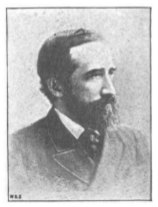
Dr. J. H. Zukertort
Once in England he resolved to make it his permanent home. He liked the roast beef and port wine and the patronage accorded to professional chess-players; and so, from 1872 to the time of his decease, 1888, he was a citizen of London, occasionally visiting the Continent to play in tourneys, and never failing to carry off a good prize. In 1878 he won the first prize in Paris, defeating the leading champions of the day; and in 1883 he achieved the great object of his ambition by triumphing over Steinitz and winning the first prize in the London Tournament. On that occasion he distanced all his opponents by no less than three games, and secured the first prize a fortnight before the termination of the contest. From the very first he headed the poll, played with remarkable ease, unfolded a new style—combining uncommon boldness with perfect soundness, never had to thank luck for a victory, conducted every part of the game with unsurpassed skill, and never once failed to be brilliant when an opportunity presented itself for being so. It was no wonder, when he defeated Blackburne, and thereby secured the championship, that loud applause from a large body of spectators greeted his victory That applause was the involuntary homage due to successful genius, not the triumphant exultation over a brave but defeated competitor. Most, if not all, Englishmen desired to see the laurel crown once more decorating Blackburne’s brow; but no Englishman, and scarcely even one foreigner, grudged the Prussian his well-won honours.
The triple defeat sustained by Zukertort towards the close of the tourney excited no small surprise amongst the multitude, and grievously troubled his numerous friends; and now comes the question, what was the cause of this catastrophe? It certainly was not a desire on his part to subserve the interests of the opponents to whom he succumbed, inasmuch as Zukertort was incapable of any unfair conduct. It was not carelessness—all who know Zukertort will feel assured that his ambition was—not merely to win the first prize, but to win it with unexampled glory. Moreover, he was not at all likely to be careless, seeing that one of his ardent admirers had backed him for a considerable sum to score twenty-four games, that is, two more than the number he actually won. I think that his ultimate break down may be easily accounted for. The natural cause is the right one. It was the result of a rebound from the nervous tension under which he had been playing during the previous seven weeks. Having during that period excluded from his thoughts every subject external to the game, lived, as it were, in an atmosphere of chess, and then, having achieved the object of his ambition, his mind naturally wandered out into the world beyond chess; his thoughts became dissipated, and refused to be concentrated upon the further efforts which he was called upon to make. I have little or no doubt that, if twenty-four had been the minimum number required for victory, Zukertort would have reached it. But, though I, in common with all true lovers of our game, rejoice to do justice, and render honour to Zukertort’s powers, yet I hold it by no means fair to depreciate the skill, or sneer at the success, of any of the players (Mackenzie, Sellman, and Mortimer) who prevailed over him in the last three games. This, I regret to say, has been done by some critics. Referring to Mackenzie’s victory, they call it a “surprising event.” But why should there be any surprise, seeing that the result of former encounters between these two champions was an equal score? More than twenty years ago Mackenzie won the championship of America, and never since then has it been once wrested from him. Besides his Transatlantic triumphs, Mackenzie has, on several occasions, played in European tournaments, and, by winning high prizes in each of them, vindicated his right to a place amongst the veritable masters of the game. To speak, therefore, of his victory over Zukertort, or rather, his making equal games with that gentleman as a “surprising event, “is to place him outside the list of first-class champions. To speak of him thus, argues in truth an ignorance of history, or an incapacity to appreciate the force of facts.
Zukertort was a great “blindfold”player. He could, as such, conduct fifteen or sixteen games, but he never, I believe, finished such a large number at one sitting. and seldom produced games such as Blackburne’s, replete with interest and sparkling with beauty. Still, as a blindfold séancist, he is entitled to a place in the first class.
Zukertort was an encyclopaedist; a sort of Lord Chancellor Brougham, “only more so.”For he not merely knew a little of everything, but also a great deal of his own profession—chess. He was, indeed, a master of chess lore. He had all the best book-moves at his fingers’ ends, and had only to spread out his hands over the board, and the best book-moves dropped from them upon it. His memory was prodigious, which, perhaps, was one reason why he loved to show his games and record his victories. But he never was a bore, and in this way was he saved from degenerating into one.
One day he was playing with a jocose youth, who was also a strong player. Well, Zed won No. 1 game. “Now that game,”said he, “reminds me of an Allgaier which I won of Anderssen in my seventeenth match with him. And he said—you know Anderssen?—that it was the finest specimen of the Allgaier he had ever seen. I will show it to you if you like.” Then he showed it. Well, Zukertort played and won No. 2 game.
“Now that game reminds me of one I played with Schumoff at St. Petersburgh about twenty years ago. It never was recorded, but the club presented me with a gold medal, on which was inscribed the position where I made the great sacrifice that won the game. (Read this cum grano salis) I have lost the medal, but I will show you the game if you like.” Then he showed it also.
Then they began No. 3, and lo! the jocose one got the best of it, and, just as he was delivering the crushing stroke, he jocularly observed: “Now this position, Doctor, is identical with that which occurred in the forty-fifth game of the one hundred and ninety-seventh match I played with Labourdonnais’s grandmother’s uncle’s aunt, and it may save you trouble to know that I won the game at the two-hundredth move!” Thereupon Zukertort smiled a sad smile, and looked reproaches at his opponent; but never from that day forth did he show his games or recount his victories.
And here, in justice to this good fellow’s memory, I must say that, in showing his games, he did not desire so much to magnify himself as to please others. He delighted in diffusing a knowledge of chess, and, unlike most masters, if he discovered a “new” move, he would not hesitate to impart his knowledge even to a rival. His talk about himself and his victories never bored me, but, on the contrary, afforded me considerable amusement. He was so pleased with himself that he seemed to think (and rightly) that he was diffusing pleasure by making others pleased with him. To talk about oneself does not always argue egotism or prove tiresome. A good deal depends upon the sort of person “self” is, and whether the talk is to gratify listeners or only to glorify the talker.
Socially, Zukertort was a very pleasant man. merry as a cricket and chirpy as a bird. He never frowned except when playing “blindfold,”and never looked sad but when walking by himself. His popularity, which was great and deserved, was evident in many ways, especially in the entertainments given to him by the three leading London clubs—the St. George’s, British, and City—previous to his departure for America to play his last match with Steinitz. “Well,”said a would-be wit at the City banquet given in his honour, “Well, after all, I believe Zukertort is feted to win.”
Prior to his match with Steinitz the following amusing incident occurred at a dinner given by the Manhattan Club at Philadelphia to Messrs. Steinitz and Zukertort. After several toasts, Mr. Eugene Delmar rose and cried out, “Here’s to the champion chess player of the world. Let him respond.” Immediately the company waxed hilarious. Zukertort got red in the face, and Steinitz husky in the throat; but “the boldest held his breath; “hereupon someone rose and said, “Gentlemen, I think I see a way out of this difficulty, let Messrs. Steinitz and Zukertort sing a duet in response.”The champions would not sing; but some horrid creature now calls it the due-yet song! As the company were leaving the room, Steinitz was whispering lugubriously to a neighbour, “You see how I am treated, and receive no recogni—;” whilst Zukertort was gaily twittering forth: “Yes, sir, even when I was a boy I was a great mathematical geni—” he would have said; but ere the word was out the guests were fled.
Upon his return from America after the match, Zukertort was again entertained by the City of London Chess Club, when he made a very dignified as well as humorous speech, offering no excuse for losing the match, except what may be found in the following portion of his speech. “I was not pleased,”said he, “with the changes of climate I had to undergo. In New York I enjoyed good health, but not so at St. Louis nor at New Orleans. I could neither eat, drink, nor sleep in a manner that satisfied my desires or augured well for my success in the match. ‘What do you object to in New Orleans?’ asked a citizen thereof. ‘Why, to the drains,’ I replied. ‘The drains, there is nothing the matter with them.’ ‘Nothing the matter! Where is your nose?’ ‘My nose is all right.’ ‘How, then, can you say there is nothing the matter with the drains? ‘Because, my dear friend, there are no drains!'”
As I have frequently in this notice called Zukertort “Doctor,”I may mention that he was a member of the medical profession, and, as such, served with the German Army before Metz. Steinitz used to amuse himself and others by deriding this doctorial prefix. “He is no doctor,” would shout the Bohemian champion. —”He is,”would reply an eminent F.L.C.P., “I’ve seen his diplomas.”—” How is it, then, he never uses that title in Germany? “—” Because in that highly educated country, “retorted the eminent one, “Doctor is the vulgar title of every man, woman, and child.”Very modest indeed, say I, was it on Zukertort’s part to content himself with the title of Doctor, seeing that a great authority (Edward Lowe) divided all chess players into two classes, calling ordinary ones “Doctors,”and extraordinary ones “Professors;” and truly, professor, aye Regius professor, of chess was Dr. J. H. Zukertort.
Always weak in body and delicate in health, Zukertort found it a work of great labour to engage in hard matches or long tournaments. Still, whenever circumstances and his health admitted of it, he was one of the foremost to enter the arena and unsheathe his sword. He never shrank from the battle if by any means he could take part in it. No doubt the many arduous contests in which he engaged seriously affected his health. But the Brobdingnagian match with Mr. Steinitz permanently shattered his constitution (One of the conditions was—seven games to be played at each of the three following places: New York, St. Louis, and New Orleans.) and even dissipated his good spirits. Since that time I never knew him give a hearty laugh, or enjoy a humorous story. The bravery and chivalry of the man in consenting to “meet”the Austrian champion were worthy of all praise, but his acceptance of his adversary’s one-sided conditions was foolhardy, and even suicidal. Having won, in the grandest style, the first prize in the International tournament of 1883, he was entitled to rest upon his laurels, and enjoy the fruits of his labour. But Mr. Steinitz, thinking otherwise, tempted him with challenges, and ultimately induced him to make a match. I did my best, at the time, to dissuade the champion from meeting Steinitz in single combat, pointing out that his health was bad, and the conditions against him. But the generous and courageous spirit of the man was deaf to my counsels, and longed to give his adversary “revenge.” Accordingly he accepted the defi, fought splendidly as long as his health held good, and at last succumbed to weariness and malaria. And here I may mention that my most worthy friend, the late Dr. Charles Elam, strongly advised Zukertort, after his great victory in ’83, never again to engage in any serious match. “If you do,”said he,”it will kill you.”—” I know that,” said Zukertort, turning to me; “but, play or not play, I must be, and am, prepared to be taken away at any time without a moment’s warning.” And so it came to pass, for on Tuesday, June 191 after playing a game in the handicap at the British Club, he adjourned to the divan, where, whilst playing an off-hand game, he was seized with a fit, which terminated fatally at ten o’clock the next morning. Zukertort was born at Riga in September, 1842, and died at the Charing Cross Hospital on June 20th, 1888, aged not quite forty-six. Of all the foreign chess-players who have, within the last thirty years, visited or resided in this country, not one of them was more admired and liked than J. H. Zukertort, the “Chess Apostle.”
Download Dr. J.H. Zukertort in PDF format.
All previous Skittles Room columns are available in the ChessCafe.com Archives.
The ChessCafe.com Skittles Room is open to reader contributions. If you have an article that you would like published, please write to us via our Contact Page. If we publish your article, we will send you a free Inside Chess 1988-2000 DVD!
Copyright 2014 ChessEdu.org. All Rights Reserved.
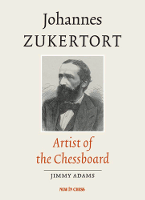
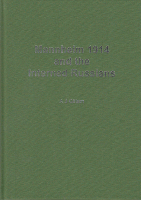
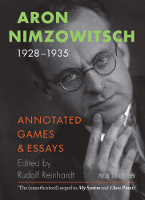
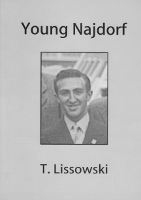
Leave a Reply